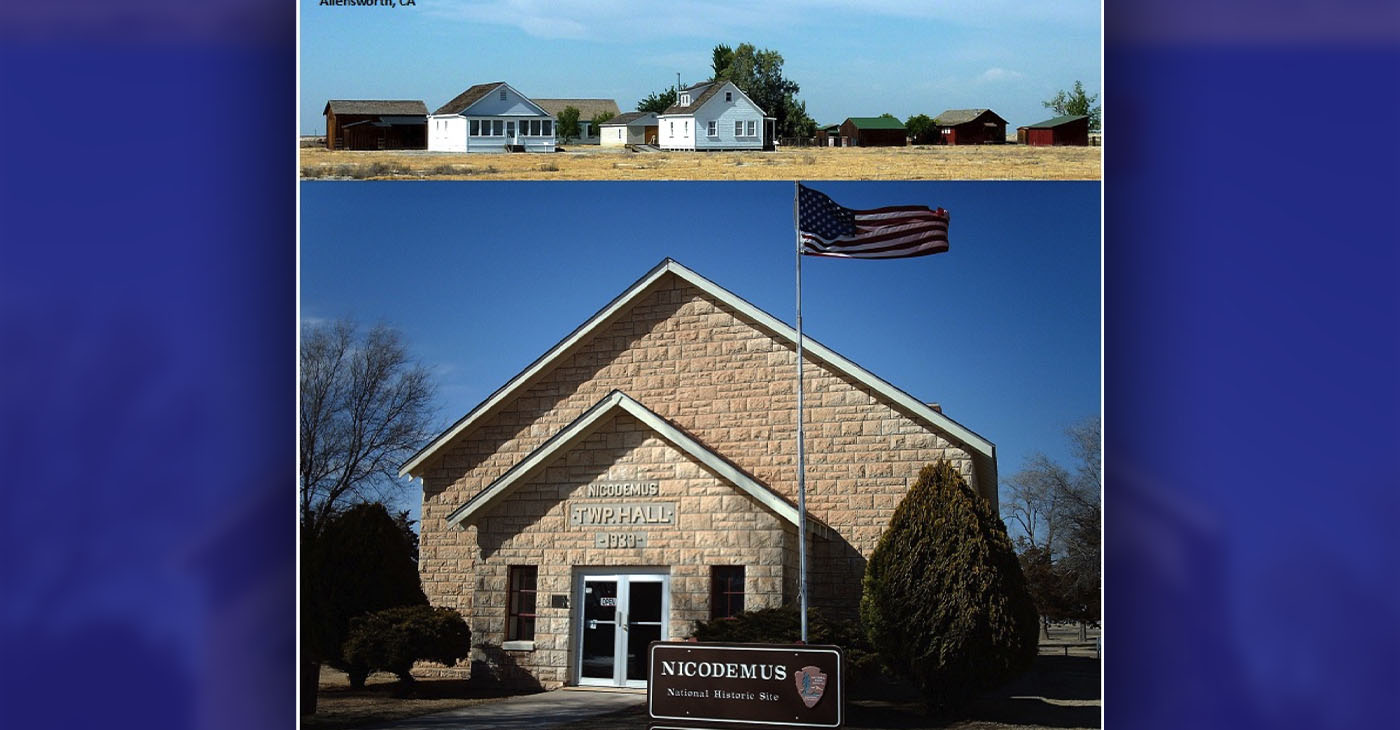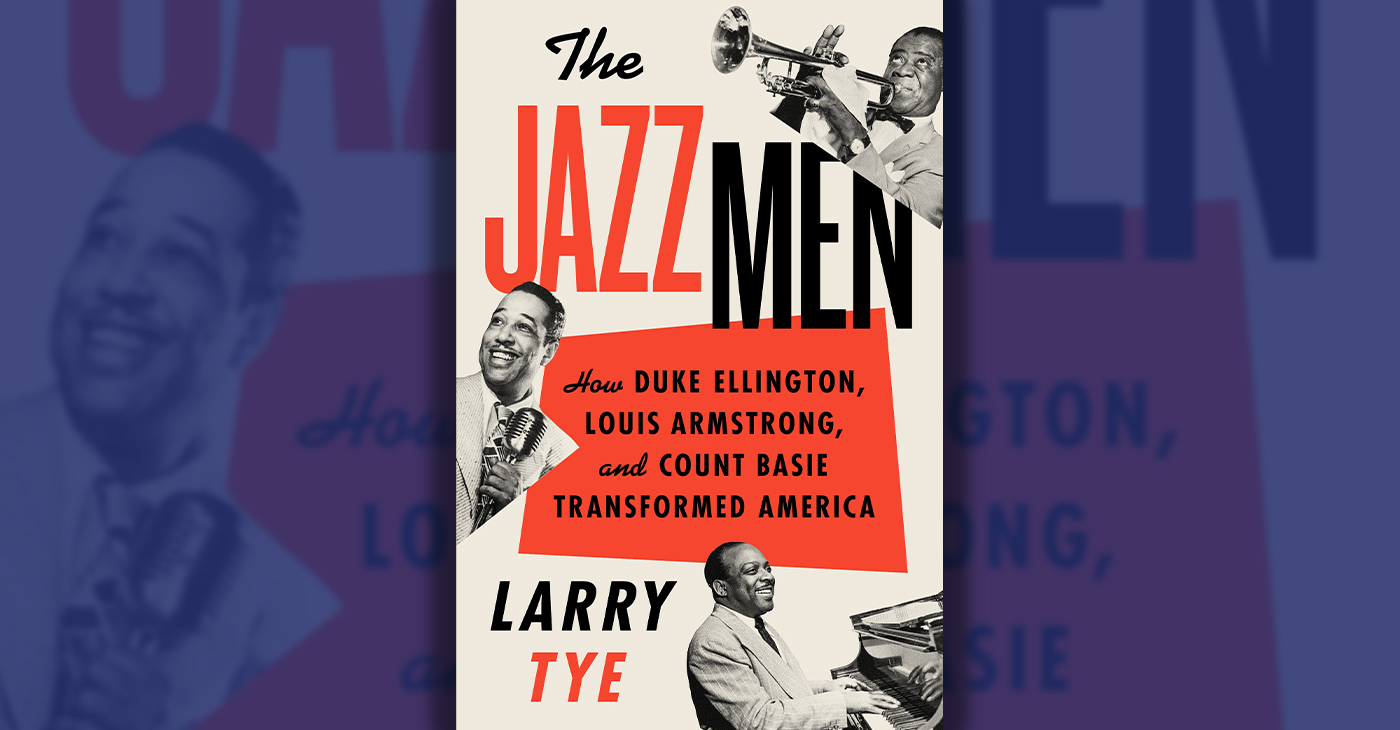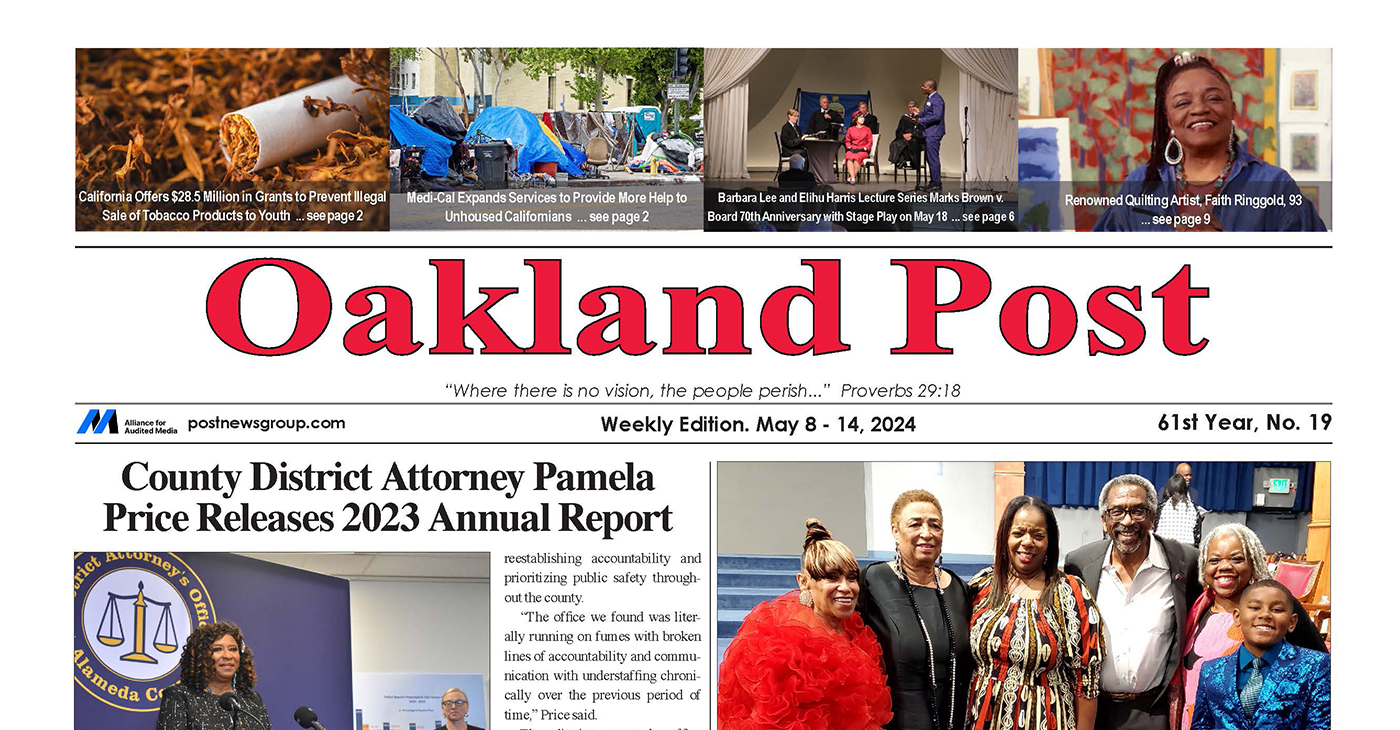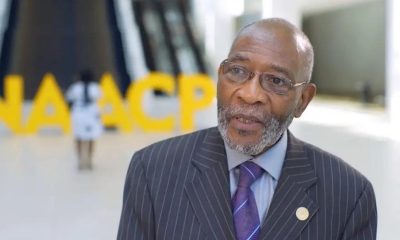Black History
Before Chocolate Cities: The New Promised Land
During the late 19th and 20th centuries, at least 88 and as many as 200 Black towns were established throughout the United States. Mostly or completely Black incorporated communities with autonomous Black city governments and commercially oriented economies, these cities were created with purposeful economic and political motives.

By Tamara Shiloh
During the late 19th and 20th centuries, at least 88 and as many as 200 Black towns were established throughout the United States. Mostly or completely Black incorporated communities with autonomous Black city governments and commercially oriented economies, these cities were created with purposeful economic and political motives.
The greatest draw to these cities was the ability to escape racial oppression, control one’s economic destiny, and prove Black capacity for self-government. They were thought to be the New Promised Land. Texas would lead the effort with the founding of Shankleville Community (1867) and Kendleton (1870), both populated by ex-slaves from the surrounding countryside.
At the end of the Reconstruction-era South, Nicodemus, Kansas, (1877) was founded by newly freed slaves.
The land on which Nicodemus and other Black communities in Kansas stood turned out to be unproductive for agriculture. Natural drought cycles diminished efforts to raise crops. Despite this setback, the lifestyle remained better than that of the South. Instead, residents built houses, businesses, clubs, churches, and schools. They also “participated in political and commercial life in ways previously denied to them,” according to the National Park Service website.
Nicodemus, populated with some descendants of the original settlers, still stands. The 2020 census reported its population to be 14.
On June 30, 1908, Allen Allensworth, a former soldier, and William Payne, a teacher, created the California Colony and Home Promoting Association. It was soon dubbed Allensworth. It had a depot station on the main Santa Fe Railroad line from Los Angeles to San Francisco, the soil was fertile, the water seemingly abundant, and the acreage was plentiful and reasonably priced, according to the News One website.
The town became a member of the county school district and the regional library system. There, the first Black Justice of the Peace in post-Mexican California was elected. By 1914, it boasted 100 residents. Most of the adults worked 10-acre farms nearby, which they purchased for $110 per acre on an installment plan.
Allen Allensworth, in 1914, lobbied for an educational institute. That’s when a series of methodical racist acts began to trigger the community’s decline. The Santa Fe Railroad built a spur line to neighboring Alpaugh, depriving Allensworth of its lucrative carrying trade. Santa Fe also refused to hire Blacks as managers or ticket agents of the station located in the colony despite repeated letters and recriminations.
Powerful white farmers diverted the White River to irrigate their own crops and cut off Allensworth’s supply. The Pacific Farming Company then failed to honor its commitment to supply sufficient water for irrigation. But the largest factor in the community’s decline was Allen Allensworth’s death. By 1920, people began to leave the area.
On Oct. 6, 1976, what was once a thriving Black community was dedicated as a park.
Read more about the dynamic network of cities and towns built, maintained, and defended by African Americans in “Chocolate Cities: The Black Map of American Life,” by Marcus Anthony Hunter and Zandria F. Robinson
Black History
Book Review: ‘The Jazzmen: How Duke Ellington, Louis Armstrong, and Count Basie Transformed America’
Your toes didn’t wait long before they started tapping. They knew what was coming, almost as soon as the band was seated. They knew before the first notes were played and the hep cats and jazz babies hit the floor to cut a rug. Daddy, it was the bee’s knees but in the new book “The Jazzmen” by Larry Tye, if you were the Sheik on the stage, makin’ cabbage wasn’t all that swank.

By Terri Schlichenmeyer
Your toes didn’t wait long before they started tapping.
They knew what was coming, almost as soon as the band was seated. They knew before the first notes were played and the hep cats and jazz babies hit the floor to cut a rug. Daddy, it was the bee’s knees but in the new book “The Jazzmen” by Larry Tye, if you were the Sheik on the stage, makin’ cabbage wasn’t all that swank.
Louis Armstrong was born in 1900 or thereabouts in a “four-room frame house on an unpaved lane” in a section of New Orleans called “Back o’Town … the Blackest, swampiest, and most impoverished” area of the city. His mother was a “chippie,” and the boy grew up running barefoot and wild, the latter of which led to trouble. At age twelve, Armstrong was sent to the Colored Waif’s Home for recalcitrant Black boys, and that changed his life. At the “home,” he found mentors, father-figures and love, and he discovered music.
For years, Bill “Count” Basie insisted that he’d grown up with “no-drama, no-mystery, and nobody’s business but his,” but the truth was “sanitized.” He hated school and dropped out in junior high, hoping to join the circus. Instead, he landed a job working in a “moving-picture theater” as a general worker. When the theater’s piano player didn’t come to work one day, Basie volunteered to sit in. He ultimately realized that “I had to get out … of Red Bank [New Jersey], and music was my ticket.”
Even as a young teenager, Edward Ellington insisted that he be treated like a superstar. By then, his friends had nicknamed him “Duke,” for his insistence on dressing elegantly and acting like he was royalty. And he surely was — to his mother, and to millions of swooning female fans later in his life.
Three men, born at roughly the same time, had more in common than their ages. Two of them had mothers “who doted” on them. All three were perform-aholics. And, for all three, “Race … fell away as America listened.”
Feel up to a time-trip back a century or more? You won’t even have to leave your seat, just grab “The Jazzmen” and hang on.
In his introduction, author Larry Tye explains why he so badly wanted to tell the story of these three giants of music and how Basie’s, Ellington’s, and Armstrong’s lives intersected and diverged as all three were near-simultaneously performing for audiences world-wide. Their stories fascinated him, and his excitement runs strong in this book. Among other allures, readers used to today’s star-powered gossip will enjoy learning about an almost-forgotten time when performers took the country by storm by bootstrapping without a retinue of dozens.
And the racism the three performers encountered disappeared like magic sometimes, and that’s a good tale all by itself.
This is a musician’s dream book, but it’s also a must-read story if you’ve never heard of Basie, Ellington, or Armstrong. “The Jazzmen” may send you searching your music library, so make note.
Activism
Oakland Post: Week of May 15 – 21, 2024
The printed Weekly Edition of the Oakland Post: Week of May May 15 – 21, 2024

To enlarge your view of this issue, use the slider, magnifying glass icon or full page icon in the lower right corner of the browser window. ![]()
Activism
Oakland Post: Week of May 8 – 14, 2024
The printed Weekly Edition of the Oakland Post: Week of May May 8 – 14, 2024

To enlarge your view of this issue, use the slider, magnifying glass icon or full page icon in the lower right corner of the browser window. ![]()
-

 City Government2 weeks ago
City Government2 weeks agoCourt Throws Out Law That Allowed Californians to Build Duplexes, Triplexes and RDUs on Their Properties
-

 Activism4 weeks ago
Activism4 weeks agoOakland Post: Week of April 24 – 30, 2024
-

 Alameda County2 weeks ago
Alameda County2 weeks agoAn Oakland Homeless Shelter Is Showing How a Housing and Healthcare First Approach Can Work: Part 1
-

 Activism2 weeks ago
Activism2 weeks agoS.F. Black Leaders Rally to Protest, Discuss ‘Epidemic’ of Racial Slurs Against Black Students in SF Public School System
-

 Community2 weeks ago
Community2 weeks agoGov. Newsom, Attorney General Bonta Back Bill to Allow California to Host Arizona Abortion Care
-

 City Government4 weeks ago
City Government4 weeks agoVallejo Community Members Appeal Major Use Permit for ELITE Charter School Expansion
-

 Community2 weeks ago
Community2 weeks agoGov. Newsom Issues Proclamation Declaring Day of Remembrance for the Armenian Genocide
-

 California Black Media2 weeks ago
California Black Media2 weeks agoCinco De Mayo: Five Interesting Facts You Should Know About the Popular Mexican American Holiday


























































